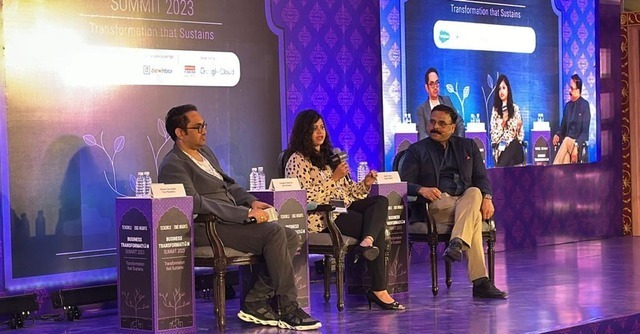
Business Transformation Summit 2023: Insights for companies on how to deliver what CX demands


The customer experience management market is experiencing rapid expansion, reflecting a shifting ,business landscape where customer satisfaction takes centre stage. Companies now recognise the immense value of delivering exceptional customer experiences, spurring a heightened demand for CX tools and solutions.
KPMG India's recent report, 'Mastering Intentional Experiences – India CX Report,' sheds light on how top brands are deliberately crafting customer experiences. The report delves into how Indian businesses are adapting to evolving consumer expectations influenced by global events and outlines a potential $200 billion opportunity for Indian companies by implementing effective CX strategies.
At the recent Business Transformation Summit 2023 organised by TechCircle, insights were shared during the Fireside Chat: "Future of CX: Navigating the Hyper-Connected Experience Landscape" by Pavan Chavvakula, COO of Business Transformation at Apollo Health, and Anamika Chatterjee, Lead Customer Service-Retail Finance at Hero Fincorp.

When asked about the significance of customer experience today and whether organisations can truly provide the kind of experience that benefits them, Chatterjee shared, "Five years ago, we began discussing customer experience, shifting our focus from mere billing services to delivering real customer experiences. In this digital age, we've come to terms with the fact that it's no longer about just saying we provide an experience; it's about embodying it in everything we do."
Chavvakula further emphasized, "Customer experience is a key element, and it's crucial to maximise hyper-connectivity. With the emergence of digital therapeutics and smart devices, we've harnessed a wealth of data for a deeper understanding of customer experiences. We also cater to our internal customers, and in a country like India, where there's just one doctor for every 1,000 people, predictive analysis and data analysis play a significant role."
When asked about creating the core competency for customer experience, Chatterjee shared key pillars. She explained, "There are two critical aspects. First is data analysis. We have a wealth of information at our fingertips. The key is to maximize its use in understanding customer needs and who our customers are. The second is automation. Many organisations are automating processes. It's vital to strategize and leverage these tools effectively. Identifying touchpoints and optimising operations can be the organisation's greatest asset in enhancing customer experiences."

Chavvakula emphasized the vital importance of customer obsession as a key competency for organisations. He stressed the need to identify where knowledge translates into various touchpoints and highlights potential bottlenecks.
According to him, this level of insight can only be achieved through a genuine dedication to understanding and meeting customer needs, with an emphasis on achieving seamless experiences and minimising errors. He expressed concern that, in his view, organisations haven't sufficiently prioritised this aspect, urging the need for strategic succession planning while maintaining a relentless focus on customer satisfaction.
